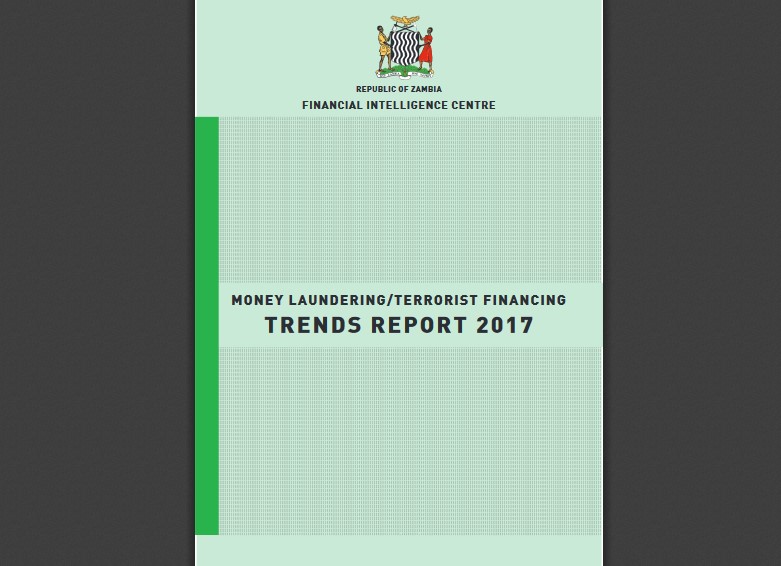FOREWORD
The Financial Intelligence Centre (the Centre) strengthened its operational capabilities and stakeholder outreach in 2017, with special focus given to private sector entities exposed to Money Laundering and Terrorist Financing (ML/TF) risks. The Centre also continued to support law enforcement and national security partners in our shared objective of protecting the Zambian community from crimes associated with money laundering and terrorism financing.
In 2017, the Centre also took on the role of “Supervisor of Last Resort” for reporting entities that presently do not have a clearly laid down legal framework for monitoring and regulating their responsibilities for reporting ML/TF activities, such as: Casinos, Motor Vehicle Dealers and Real Estate Agencies. This followed the amendment of the Financial Intelligence Act No. 4 of 2016. Another significant development was the incorporation by the Centre of a number of recommendations of the National Risk Assessment on ML/TF conducted in 2016.
Such initiatives have enabled the Centre to benefit from the collective knowledge and experience of the private and public sectors to deliver new insights into the risks, methods and trends in money laundering and terrorist financing. Resulting from these developments, this report which is the fourth the Centre has published, provides a number of additional insights into the nature and scale of ML/TF activities analysed and disseminated during the year.
The analysed reports of the Centre have provided important intelligence for investigations into money laundering and other serious financial crimes by law enforcement agencies. While the results of the investigations are at various stages, the Centre has started to see some cases go to court. However, the level of convictions relative to cases disseminated is still low.
It is our considered view that Zambians are best protected from the harms of financial crime when the collective efforts continue to be towards preventative measures and increasing its capacity to detect the vices.
Accordingly, the Centre has relationship with industry to generate new understanding of sector and product based ML risks.
The FIC’s reports were also critical to other achievements including detecting non-compliance by reporting entities, industry outreach and education on ML/ TF methodologies, and contributing to the ongoing reforms of the AML/CTF regime.
Further, the expertise of the private and public sectors are applied to address - ing the risks that otherwise harm the integrity of Zambia’s financial systems and increase the country’s exposure to money laundering.
Whilst the awareness of money laundering and terrorist financing activities occurring in the country is improving, we are however yet to record significant progress in terms of convictions and forfeiture of assets that are tainted. This is a national challenge that requires the collective efforts of all public agencies and communities to address if we are to protect the country from financial crimes.
Mary C. Tshuma (Mrs.)
Director General
Financial Intelligence Centre (FIC)
Download the entire Republic of Zambia Financial Intelligence Centre Money Laundering/Terrorist Financing Trends Report 2017 here: http://caritaszambia.org/phocadownload/research_reports/financial_inteligence_centre_trends_report_2017.pdf


